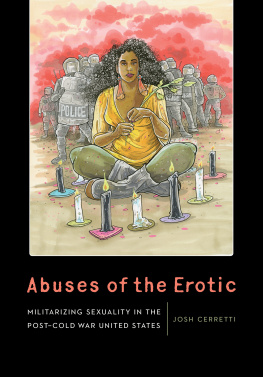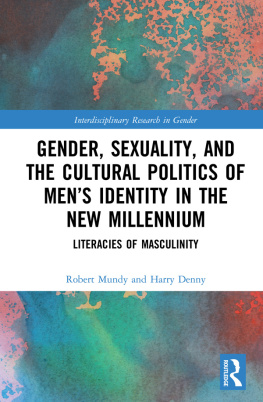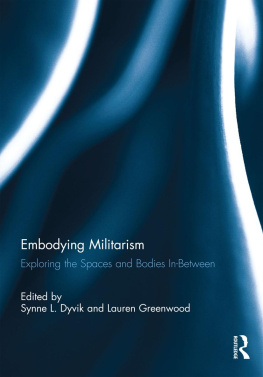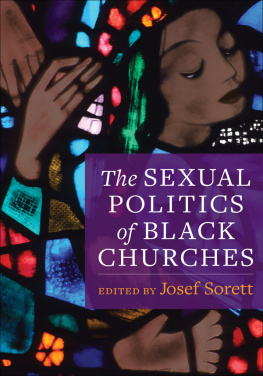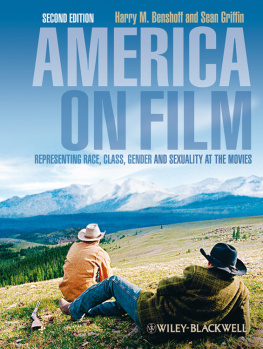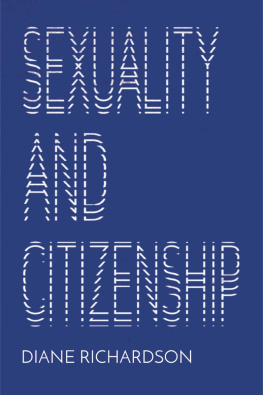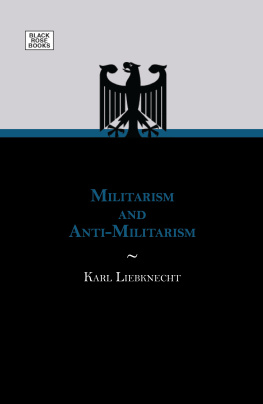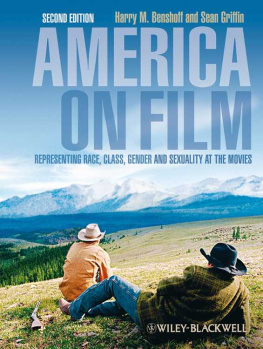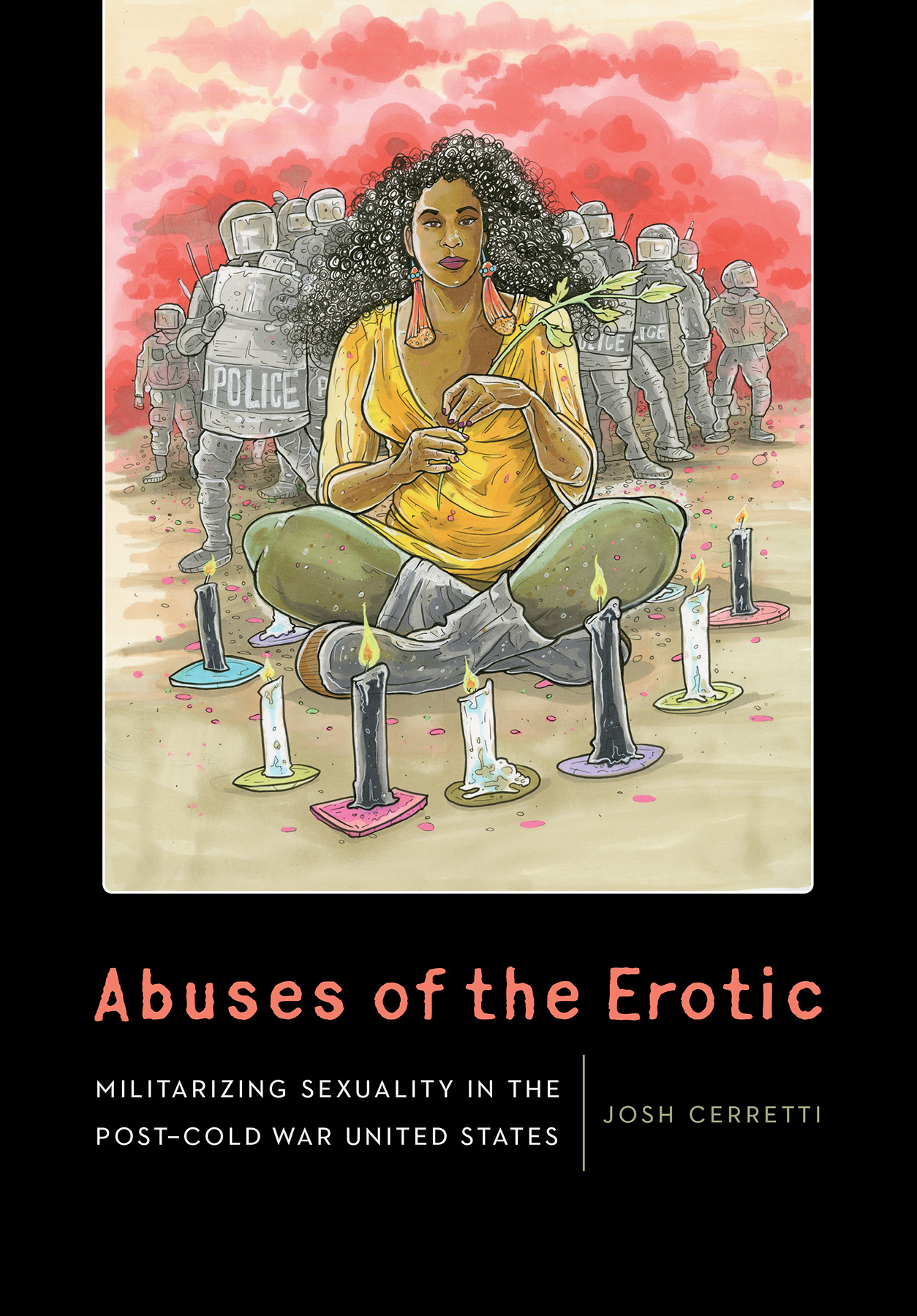
Backed by rigorous historical documentation, Abuses of the Erotic demonstrates that sexualized violence is neither incidental nor external to militarization but endemic to it. This book is an eye-opener for anyone interested in the intersectional workings of state violence.
Carine Mardorossian, author of Framing the Rape Victim: Gender and Agency Reconsidered
Abuses of the Erotic allows us to trace over a decade of militarized sexuality and to appreciate how these instances have foundationally changed how we think of sexual and gender politics in the United States today. Two strengths of the book are the fact that Cerretti discusses militarism in relation to both homosexuality and heterosexuality and that he takes an expansive, transnational view of militarism. The accessibility of the language and the fact that it focuses on events in recent history that were heavily covered in the popular press mean that this work will have broad appeal.
Ariana E. Vigil, author of War Echoes: Gender and Militarization in U.S. Latina/o Cultural Production
Expanding Frontiers: Interdisciplinary Approaches to Studies of Women, Gender, and Sexuality
Series Editors
Karen J. Leong
Andrea Smith
Abuses of the Erotic
Militarizing Sexuality in the PostCold War United States
Josh Cerretti
University of Nebraska Press / Lincoln
2019 by the Board of Regents of the University of Nebraska
An earlier version of chapter 1 appeared as Rape as a Weapon of War(riors): The Militarisation of Sexual Violence in the United States, 19902000 in Gender and History 28, no. 3 (November 2016): 794812. 2016 by John Wiley and Sons Ltd. Used with permission.
An earlier version of chapter 2 appeared as Confronting an Enemy Abroad, Transforming a Nation at Home: Domestic Militarism in the US, 19901996 in Radical History Review 126 (October 2016): 5070. Used with permission of Duke University Press.
Cover designed by University of Nebraska Press; cover image Cristy C. Road, Next World Tarot: 7 of Wands, 2017, www.croadcore.org.
All rights reserved
Library of Congress Cataloging-in-Publication Data
Names: Cerretti, Josh, author.
Title: Abuses of the erotic: militarizing sexuality in the postCold War United States / Josh Cerretti.
Description: Lincoln: University of Nebraska Press, [2019] | Series: Expanding frontiers: interdisciplinary approaches to studies of women, gender, and sexuality | Includes bibliographical references and index.
Identifiers: LCCN 2018043071
ISBN 9781496205568 (cloth: alk. paper)
ISBN 9781496215857 (epub)
ISBN 9781496215864 (mobi)
ISBN 9781496215871 (pdf)
Subjects: LCSH : Women and warUnited States. | Women and the militaryUnited States. | Gay military personnelUnited States. | MilitarismUnited States. | SexUnited States. | United StatesMilitary policy.
Classification: LCC JZ 6405. W 66 C 47 2019 | DDC 306.70973dc23
LC record available at https://lccn.loc.gov/2018043071.
The publisher does not have any control over and does not assume any responsibility for author or third-party websites or their content.
Contents
Abuses of the Erotic
In the wake of the September 11, 2001, hijackings, amid a storm of anxieties about everything from new airport security procedures to envelopes of anthrax powder, people in the United States from across the political spectrum also appeared profoundly anxious about sexuality.
Seeking to condemn those who lifted the veil of protection that he believed allowed no one to attack America on our soil since 1812, conservative Christian pastor Jerry Falwell used the September 13 episode of the television show The 700 Club to levy an accusation. Falwell said you helped this happen to the abortionists, and the feminists, and the gays and the lesbians who are actively trying to make that an alternative lifestyle. Falwells specification of reproductive technology, feminist ideology, and sexual orientation as the forces imperiling his country made clear that he was worried about the power of sexuality. His perspective on geopolitics suggested that national security depended, in large measure, on the proper practice of national sexuality.
Falwells words were quickly condemned as hyperbolic and divisive, even by close allies like then president George W. Bush. At the same time, Bushs reactions connected the events of September 11 to sexuality too. He began his September 20 address to Congress and Beyond just appealing to threatened sexuality to mobilize heterosexuals for war, Bush directed civilians to concern themselves with the pursuit of conventional heterosexual life goals, leaving the struggles around geopolitical problems to military professionals.
Those on the U.S. right were not alone in expressing their anxieties about sexuality in their responses to September 11. Liberal New York senator Chuck Schumer referred to the attacks as a figurative sexual assault, saying, Theres a sense that weve been violated, that some horrible person has taken something away from all of us, in a September 15 radio address. Consciously or not, Smeal tapped into a racialized heterosexual script in which heroic white men rescue helpless women from the threatening and improper sexuality of men of color.
Meanwhile, the Servicemembers Legal Defense Network ( SLDN ) was at work preparing its eighth annual report on the U.S. militarys Dont Ask, Dont Tell policy barring openly gay, lesbian, or bisexual Investing optimism in an institution that actively punished gay and lesbian people with varying degrees of intensity since its inception, opponents of the militarys gay ban also minimized the decades of lesbian and gay activism in opposition to the state and its violences, representing gay and lesbian people as normal, nationalist U.S. citizens first and sexual dissidents last.
Certain themes can be distilled from these statements and events: the connection between national security and national sexuality, the use of critiques of violence against women as camouflage for other violences, the increased willingness in the dominant culture to incorporate those modalities of nonnormative sexuality most amenable to dominant power, and the insistent centering of reproductive heterosexuality coupled with callous disregard for certain lives and bodies. Taken together, these points marked some vertices of the formations of both sexuality and militarism specific to the United States in the early twenty-first century. In Abuses of the Erotic, I argue that the connections between sexuality and militarism apparent in the wake of September 11, 2001, are best understood in reference to the decade that immediately preceded that day. The first decade following the Cold War became the last decade before the War on Terror in large measure through changes in the relationship between sexuality and militarism. That is, I argue that a project of militarizing sexuality succeeded in the 1990s United States, and, furthermore, the mass mobilizations of state violence collectively known as the War on Terror could not have happened without sexualities having been militarized.
Black feminist scholar Audre Lorde, certainly one of the most significant thinkers of the late twentieth century, wrote that the erotic is a resource within each of us and in order to perpetuate itself, every oppression must corrupt or distort those various sources of She went on to explain that although the erotic offers a well of replenishing and provocative force for social justice, it is susceptible to being misnamed and transformed into a tool of oppression. Drawing analyses from Lorde and the many women, LGBTQ , and of color thinkers and activists she has inspired, I ask how the erotic has been corrupted and distorted in order to perpetuate state violence in the years since her death in 1992. Throughout her work, Audre Lorde demonstrated the uses of the erotic. Here, I demonstrate some of the recent
Next page
